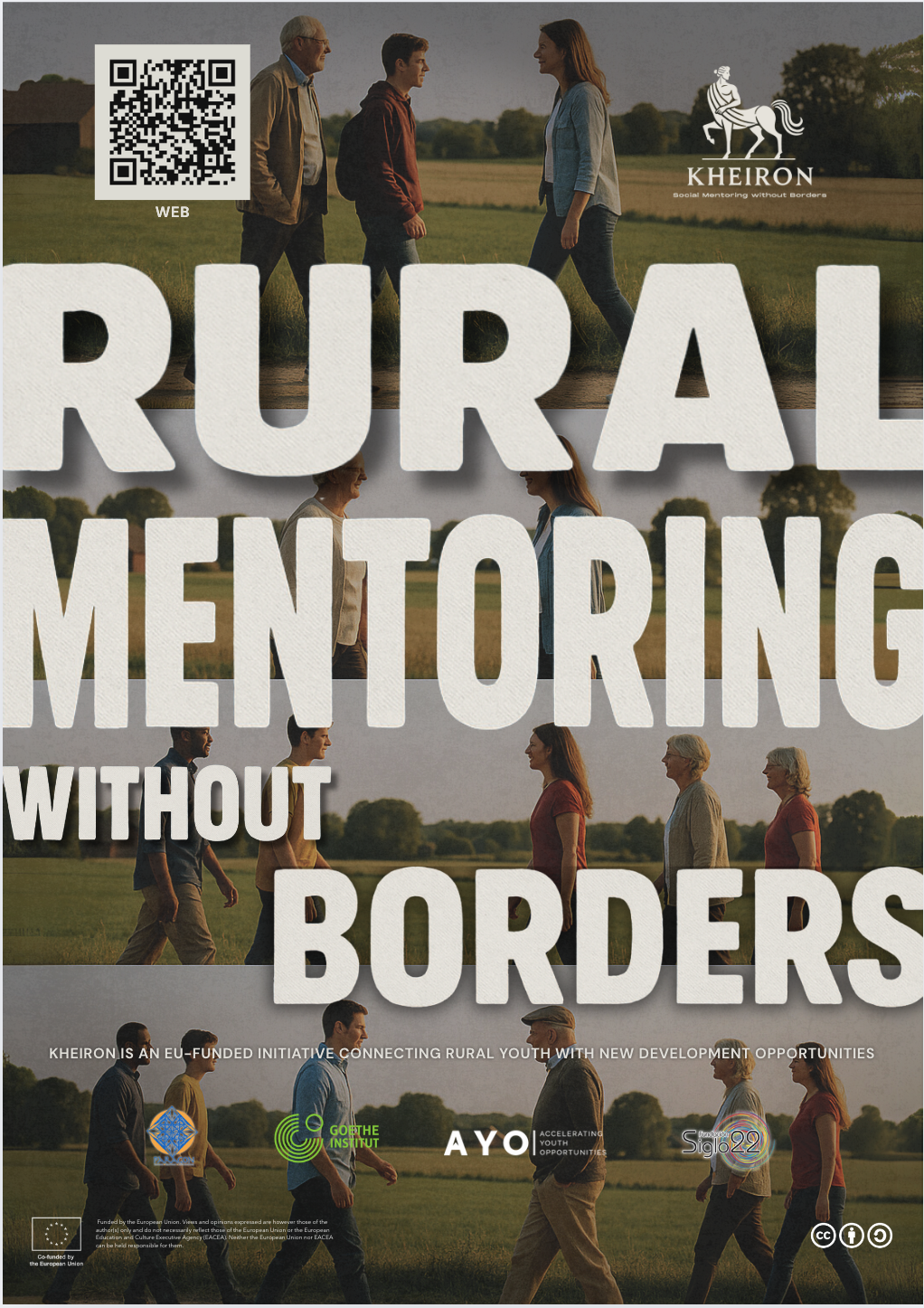KHEIRON is a European initiative co-funded by the Erasmus+ programme, aimed at promoting intergenerational social mentoring as a strategic response to the challenges faced by young people in rural areas across Europe. The project draws inspiration from Chiron (Kheirón in Greek mythology), the wise centaur known for his role as mentor and guide — a symbol of knowledge transmission across generations.
Why Kheiron?
In rural areas across Europe, many young people grow up facing significant social and educational challenges. These may include limited access to quality education, fewer professional opportunities, and reduced exposure to diverse role models. As a result, rural youth often experience a sense of disconnection, lower motivation, and a lack of opportunities for personal growth.
At the same time, there is a generation of older adults with valuable life experience and a strong willingness to contribute to society. However, their potential remains underused, especially in regions where social structures are weaker.
KHEIRON was created to address this gap. It offers an innovative model of intergenerational social mentoring that brings together senior mentors and young people from rural communities. By fostering meaningful, structured relationships between generations, the project promotes personal development, active citizenship, and inclusion for both mentors and mentees. It aims to strengthen the social fabric of rural Europe while creating a model that is scalable and transferable across different contexts.

Project Objectives
The KHEIRON project focuses on fostering holistic development and emotional resilience among rural youth. It promotes inclusion and equal opportunities, and it supports active participation in community life. At its core, the project values intergenerational exchange as a method to enrich the learning process and empower individuals. Another key objective is to build a European network of mentors, with special emphasis on the engagement of older adults as active contributors to the well-being of younger generations. KHEIRON also incorporates gender and diversity perspectives into all its activities and materials, ensuring inclusive practices across all levels of implementation. Finally, the project leverages digital tools to improve access to mentoring and enhance the quality of the training processes.
Structure and Activities
The project is structured around two main components. The first is the development of a methodological framework for mentors, which includes training modules, educational videos, practical resources, and best practices. This framework is designed to equip mentors with the necessary skills to effectively support young people in rural settings. All materials are accessible, multilingual, and adaptable to different local contexts.
The second component involves the practical implementation of the mentoring model. This includes the training of mentors, the organisation of weekly online mentoring sessions, and the facilitation of in-person activities in rural communities. The implementation phase is supported by continuous monitoring and evaluation, allowing the project to assess the impact and improve the quality of its activities. The results of this phase will be shared through dissemination events and open-access digital platforms.
An European Partnership
KHEIRON is led by Fundación AYO (Spain), an organisation specialising in youth empowerment and social innovation. The project is implemented in collaboration with three experienced partners: Fundación Siglo22 (Spain), with expertise in gender equality, digital education, and adult training; Goethe-Institut EV (Germany), a globally recognised cultural institution promoting language learning and inclusion; and PARAGON eduTech (Greece), a research centre focused on inclusive education and technology-enhanced learning. Together, these organisations bring complementary expertise and a shared commitment to fostering innovation in adult and youth education across Europe.
Long-Term Vision
KHEIRON addresses some of the most pressing challenges in rural development, education, and social inclusion. Its approach is grounded in cooperation, adaptability, and sustainability. By encouraging collaboration between generations and across countries, the project contributes to building stronger, more resilient communities. It promotes the use of mentoring as a tool for empowerment, inclusion, and transformation, and provides a practical model that can be replicated beyond the project's initial scope.
All project results will be made publicly available and shared through the Erasmus+ dissemination platforms, partner websites, and social media. The mentoring framework and training materials will remain accessible for use by educational institutions, social organisations, and community leaders who wish to implement similar initiatives.

